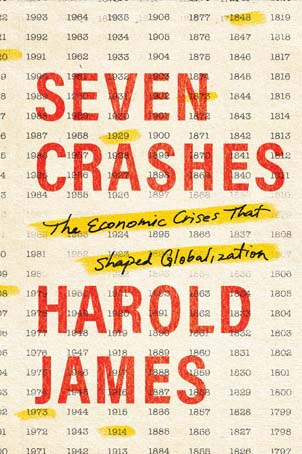Overview:
A leading economic historian presents a new history of financial crises, showing how some led to greater globalization while others kept nations apart.
The eminent economic historian Harold James presents a new perspective on financial crises, dividing them into “good” crises, which ultimately expand markets and globalization, and “bad” crises, which result in a smaller, less prosperous world. Examining seven turning points in financial history—from the depression of the 1840s through the Great Depression of the 1930s to the Covid-19 crisis—James shows how crashes prompted by a lack of supply, like the oil shortages of the 1970s, lead to greater globalization as markets expand and producers innovate to increase supply.
Seven Crashes
21-12-2023
Author(s): Harold James
Publication Number: ECES-SB266
Issued in: 2023

